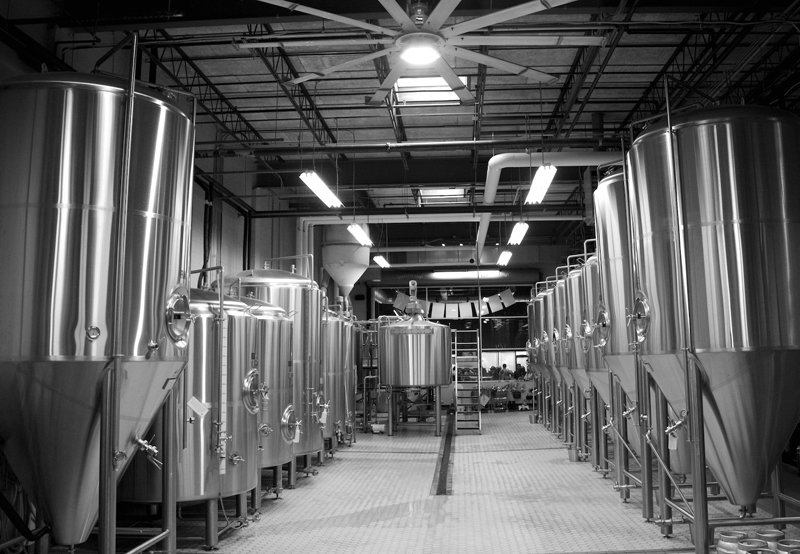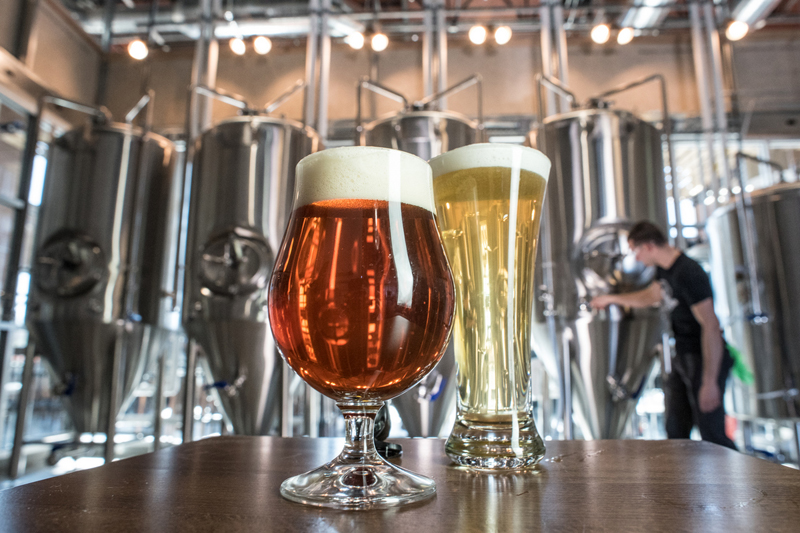How To Achieve Optimal Fermentation in the Brewing Process?
Brewing beer is an art and science that combines creativity with a detailed understanding of biological processes. Every step in the brewing process is crucial in determining the final product’s taste, aroma, and overall quality. One of the most vital phases in this journey is fermentation, where yeast converts sugars into alcohol and carbon dioxide, producing the delightful beverage we enjoy.
Achieving optimal fermentation in the brewing process is essential for consistent quality, flavor development, and the overall success of the brew. Today’s technology allows brewers to monitor and control various parameters during fermentation, such as temperature, pH, and pressure, greatly influencing the characteristics of the beer.
In this guide, we will provide invaluable insights into the fermentation phase to help you achieve the best possible results. Learn about each fermentation stage and discover how to navigate this critical part of the brewing process with expertise and confidence.
Understanding the Brewing Process
The brewing process is a comprehensive journey that transforms simple ingredients into a complex and flavorful beverage. It begins with meticulously selecting and preparing raw ingredients—primarily malted grains, hops, yeast, and water. Each ingredient contributes distinct characteristics to the final product, so you must choose them carefully.
The process begins with mashing, where grains mix with hot water, activating enzymes that convert starches into fermentable sugars. This sugary liquid, known as wort, needs to boil and typically does so alongside added hops, which impart bitterness and aroma while also serving as a natural preservative.
The Role of Yeast in Fermentation
Yeast plays an indispensable role in transforming the wort into beer. This microscopic powerhouse operates primarily through Saccharomyces cerevisiae for ales and Saccharomyces pastorianus for lagers, with yeast each contributing distinct flavors and characteristics to the final product.
The fermentation process begins with introducing yeast to the cooled wort, signaling the start of sugar conversion. During this critical phase, yeast metabolizes fermentable sugars, producing alcohol, carbon dioxide, and a variety of organic compounds that significantly influence the beer’s aroma and taste.
Preparing for Fermentation
Successful fermentation begins long before yeast introduction. At this stage, the focus must be on maintaining a sanitary environment to prevent contamination, which can compromise the integrity of the beer.
Thoroughly sanitizing all equipment, including fermenters, airlocks, and transfer hoses, is crucial. Use effective sanitizing solutions to eliminate any potential microorganisms that could disrupt the fermentation process.
Fermentation Vessel Types
Various types of fermentation vessels range from open fermenters to sealed containers. Open fermenters are suitable for traditional brewing methods, allowing for the natural escape of fermentation gases, while closed fermentation vessels provide a controlled environment and reduce the risk of contamination.
A quality jacketed brite tank is an excellent choice because it provides temperature control during fermentation and conditioning phases, ensuring a consistent product. This capability is crucial, as it allows the adjustment of the fermentation temperature in real time, facilitating the development of specific flavor profiles and preventing off-flavors from temperature fluctuations.
Monitoring the Fermentation Process
As fermentation progresses, accurate monitoring becomes imperative to ensure a successful outcome. Brewers must observe and record temperature, pH, and specific gravity regularly. Temperature control is particularly critical; deviations from the ideal temperature range can produce undesirable off-flavors and result in stalled fermentation.
Maintaining detailed records of all observations contributes to an analytical approach, enabling brewers to replicate successful batches in the future while identifying areas for improvement. By prioritizing meticulous monitoring practices, brewers can ensure that the fermentation process remains on track, ultimately leading to a high-quality final product that meets consumer expectations.
Identifying Fermentation Stages
Fermentation is a complex process that generally unfolds in two main stages: primary and secondary fermentation. During the primary stage, yeast is most active, consuming sugars in the wort and converting them into alcohol and carbon dioxide. The primary fermentation usually lasts several days to a few weeks, depending on the yeast strain and the beer style.
The second stage allows the beer to mature, enabling the flavors to develop and settle. The beer transfers to a different vessel during secondary fermentation, often called a secondary fermenter. This practice helps clarify the beer by removing it from the sediment that can accumulate during primary fermentation, minimizing any off-flavors from prolonged contact with the yeast and particulates.
The Importance of Conditioning
Conditioning is a pivotal phase in the brewing process, serving as a crucial bridge between fermentation and the final product. This stage is essential for the maturation of the beer’s flavors, allowing them to blend seamlessly and develop complexity. During conditioning, the remaining yeast cells and particulates settle to the bottom of the fermentation vessel. This natural process clarifies the beer and contributes to a more refined mouthfeel and smoother finish.
One of the primary goals during conditioning is to enhance the overall flavor profile of the beer. As the beer matures, chemical reactions occur, influencing aroma and taste. This maturation period also reduces harsh flavors that may have developed during fermentation, producing a more polished final product.
Carbonation Techniques Post-Fermentation
Carbonation is a vital step in brewing, as it enhances the beer’s consistency and plays a significant role in preserving its freshness and stability. Brewers typically employ two primary carbonation methods: natural and forced carbonation.
Natural carbonation involves reintroducing fermentable sugars into the conditioned beer, which allows the remaining yeast cells to ferment these sugars and produce carbon dioxide (CO2). This method is popular for its ability to develop complex flavors and a more nuanced mouthfeel, thanks to the continuing fermentation process.
Forced carbonation involves directly injecting CO2 gas into the beer, typically using a CO2 tank and a carbonation system. By controlling the pressure and temperature during this process, brewers can achieve precise carbonation levels that align with the intended beer style.
Storage Considerations
Storage conditions are equally important. Brewers must keep beer away from direct sunlight and store it in a stable environment with consistent temperatures. Fluctuating temperatures can lead to undesirable changes in the beer’s flavor profile and carbonation levels. Ideally, the storage temperature should range between 45-55°F for most ales and 40-45°F for lagers.
These conditions retain the desired characteristics of the beer while ensuring a prolonged shelf life. Do not store beer in locations that experience regular vibrations; such disturbances can agitate the liquid, leading to a breakdown of flavor compounds and negatively impacting the overall quality.

The brewing process for optimal fermentation is intricate, requiring meticulous attention to detail and a solid understanding of fermentation's critical role in creating quality beer. By following the outlined steps and investing in quality equipment, brewers can achieve optimal fermentation, leading to consistently excellent results in their final products.
 Jinan Alston Equipment Co.,Ltd.
Jinan Alston Equipment Co.,Ltd.
